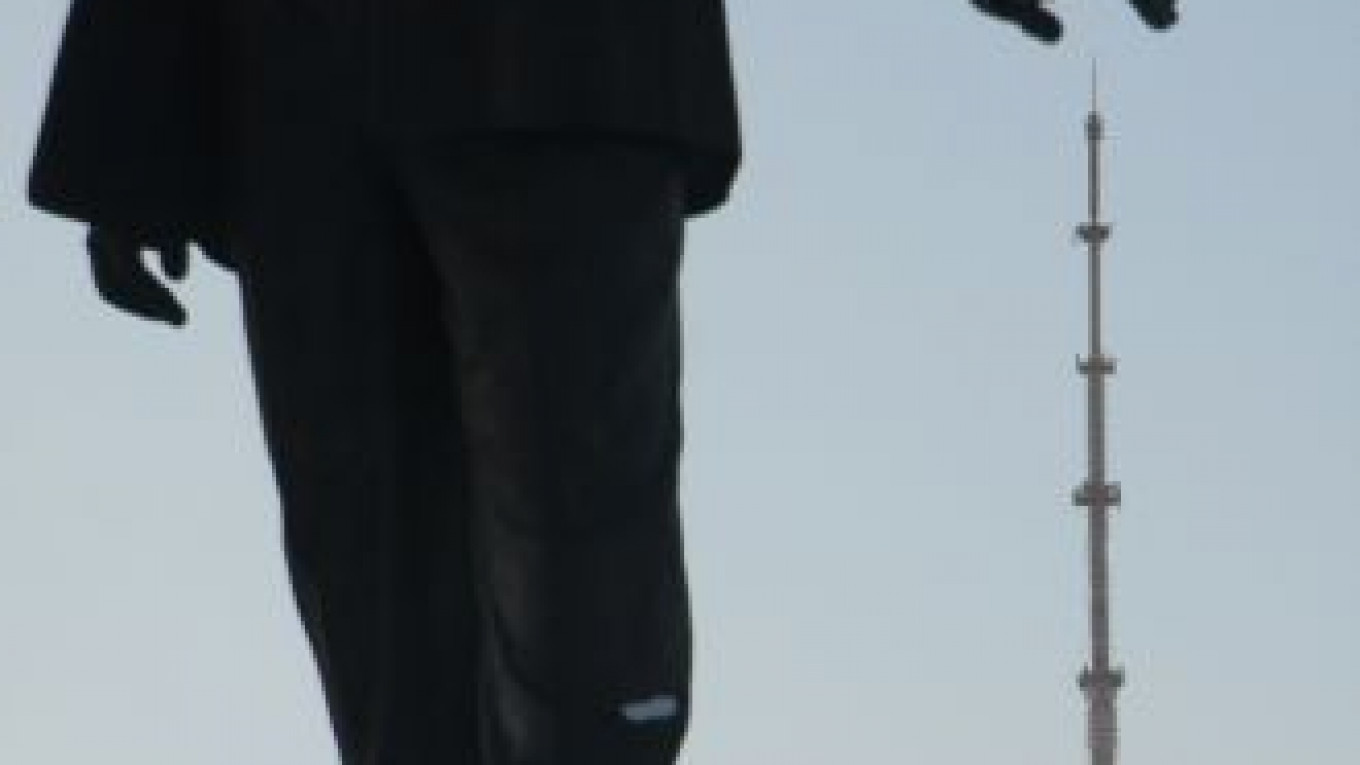The $4.2 billion television advertising market is entering the new year with two more players to comply with antitrust rules, but industry powerhouse Video International will dominate the business at least for the near future.
Video International, which will have to cede part of the market so its share doesn't go over 35 percent come Dec. 29, plans to consult the two new companies that will sell commercials for such channels as state-owned Rossia 1 and private CTC.
“In fact, the alignment of forces on the TV ads market hasn't changed,” Pyotr Rybak, chief executive of another major sales house, Alkasar, said in an e-mailed statement.
A law passed last year set a threshold of 35 percent of the market for any single industry player, in a blow to Video International with its 71 percent share as of earlier this year. The threshold applies starting Dec. 29.
Video International now sells commercials for Channel One, channels such as Rossia 1 that are part of the state broadcasting holding company VGTRK, CTC Media, Prof Media and AF Media.
Starting Dec. 29, VGTRK and CTC Media will run their sales through their own units.
Video International's closest competition, a Gazprom-Media sales house, and Alkasar jointly control the remaining 29 percent of the market by serving Gazprom-Media's NTV, TNT, City Hall's TV Center and the National Media Group.
Last year's legislative changes were rushed through the State Duma after Gazprom-Media lost contracts with National Media Group's Ren-TV and Channel Five to Video International.
Even as CTC Media will formally run its sales independently next year, it hired Video International to consult its unit, EvereST-S, on selling commercials for the media company's three channels: CTC, Domashny and DTV, CTC Media said in a statement. Under the contract, Video International will also provide software, market research and analysis, the statement said last month.
“Video International remains our long-term strategic partner and their experience will enable us to make a smooth transition to the new sales structure,” CTC Media chief executive Anton Kudryashov said in the statement.
The companies also agreed that Video International would sell commercials for CTC Media clients outside Moscow.
Video International has been negotiating with potential advertisers as CTC Media's agent under a contract that expires on Dec. 29, but will pass over the talks to EvereST-S afterward, said Video International spokesman Anton Charkin.
Video International has also held talks with advertisers for VGTRK, whose own sales house is called RTR-Media, Charkin said in e-mailed comments. The companies were preparing to sign a contract for Video International to consult RTR-Media on sales in the future, he said.
Video International, which was acquired by affiliates of St. Petersburg's Bank Rossia earlier this year, will next year continue selling commercials for Channel One, whose market share stood at 22 percent last year, after winning a tender earlier this year. Rybak said Video International's victory in the tender had been expected by the industry players because the ad seller's “real competitors weren't invited to participate.”
It will also keep its position with Prof Media — which runs cartoon network 2x2, TV3 and MTV Russia — and AF Media, whose portfolio includes music channel Muz-TV and the 7TV channel.
Gazprom-Media and Alkasar retained their contracts with NTV, TNT and TV Center. Alkasar will also sell commercials for Mir and Moskoviya television channels.
Federal Anti-Monopoly Service director Igor Artemyev has said he was satisfied with the new regulations.
“It's not Video International that will be in charge of actual sales for everyone and could potentially set very high prices, but [the companies'] own sales houses will negotiate on actual sales and contracts,” he told reporters last month.
Gaining experience, the new sales houses could abandon their consultants in a couple of years, he said.
Video International is hoping that selling consulting and other services to the new sales houses — coupled with the growth of the television advertising market next year — will compensate for its losses from the decrease in the market share, Charkin said.
The television ad market is likely to grow by 14 percent this year to reach 130 billion rubles, according to Video International Analytical Center. The market for television ads may demonstrate a 17 percent increase to reach 152 billion rubles ($4.95 billion) in 2011.
Russia's broader advertising market, which is gradually recovering after the recession, is expected to grow by 14 percent this year to 232 billion rubles.
A Message from The Moscow Times:
Dear readers,
We are facing unprecedented challenges. Russia's Prosecutor General's Office has designated The Moscow Times as an "undesirable" organization, criminalizing our work and putting our staff at risk of prosecution. This follows our earlier unjust labeling as a "foreign agent."
These actions are direct attempts to silence independent journalism in Russia. The authorities claim our work "discredits the decisions of the Russian leadership." We see things differently: we strive to provide accurate, unbiased reporting on Russia.
We, the journalists of The Moscow Times, refuse to be silenced. But to continue our work, we need your help.
Your support, no matter how small, makes a world of difference. If you can, please support us monthly starting from just $2. It's quick to set up, and every contribution makes a significant impact.
By supporting The Moscow Times, you're defending open, independent journalism in the face of repression. Thank you for standing with us.
Remind me later.






